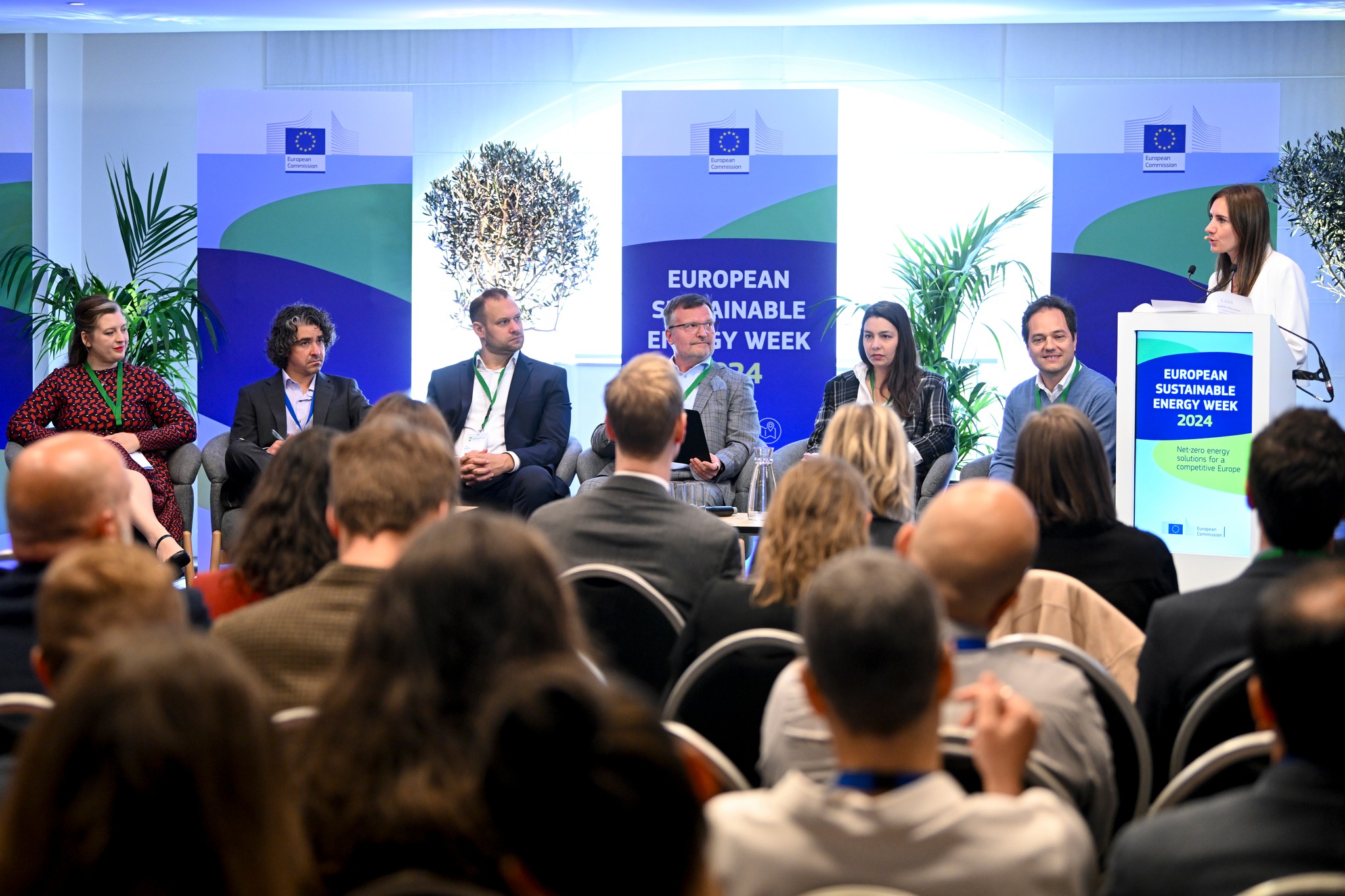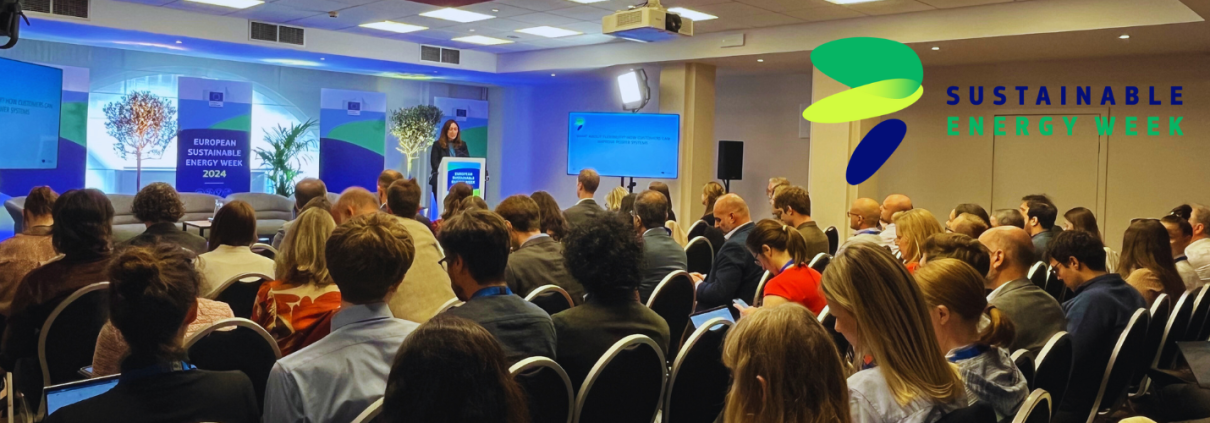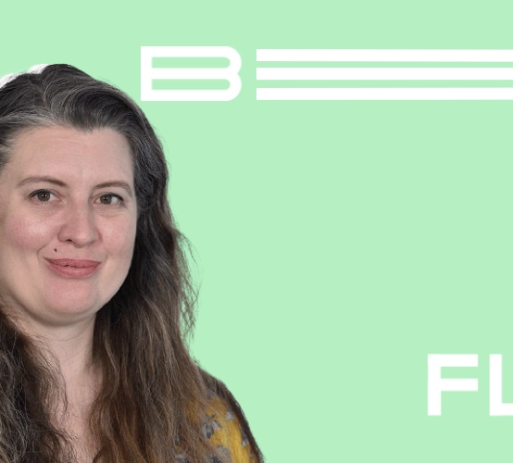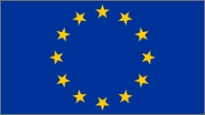Insights from EUSEW 2024: embracing energy flexibility in Europe’s transition with customers at the core
One more year, the European Sustainable Energy Week was held in Brussels from June 11th to 13th, gathering over 2.000 participants in sessions and speaking booths. The event fostered vibrant discussions on innovative solutions, regulatory frameworks, and the latest advancements and challenges in sustainable energy.
The BeFlexible project was delighted to be part of the program, hosting the session titled “What about flexibility? How customers can improve power systems.” Across two panels, participants explored how adopting customer-centric approaches can greatly enhance Europe’s energy flexibility and support its broader transition efforts, while also discussing the potential and challenges of integrating this customer-driven flexibility.
BeFlexible extends sincere thanks to all participants for their active involvement, collaborative spirit, and commitment to innovation. Gratitude is also extended to everyone who joined the #EUSEW2024 session, both in person and online, and engaged with their questions, enriching the dialogue.
Watch the full video of the session here
Unlocking local energy flexibility potential: are customers ready to embrace innovation?
The first panel delved into the readiness of customers to adopt innovative solutions for local flexibility. It was emphasized that the energy transition requires putting customers at the center of flexibility efforts. Developing platforms that facilitate data exchange across the value chain to activate various flexibility mechanisms is essential. However, reaching and engaging the final customer remains a significant challenge.
Another key point was the need to design flexibility markets that integrate energy-related services. Engaging local authorities is crucial for connecting with customers and bringing them closer to these initiatives. The panel also highlighted the necessity to revisit the basics of how flexibility can be promoted, indicating that issues like competition and pricing need fundamental reevaluation.
- Moderated by Ms. Tzeni Varfi, E.DSO.
- Mr. Veli-Pekka Saajo, Council of European Energy Regulators (CEER).
- Mr. Fernando David Martin Utrilla, i-DE (Iberdrola) and BeFlexible project.
- Mr. Tomi Medved, University of Ljubljana and STREAM project.
- Ms. Katerina Drivakou, UBITECH ENERGY and ENFLATE project.
- Mr. Josh Roberts, REScoop.eu.
- Ms. Rose Matthews, Smart Innovation Norway.

Scaling demand response in Europe: lessons learned from field-proven solutions
The second panel focused on scaling demand response across Europe by learning from existing solutions. It was noted that while Europe has a strong framework for demand response, there are still technical barriers to overcome. Demand response is not a future concept but a present reality, and it is advocated to start with non-core processes in industries to build familiarity and confidence before scaling up.
The importance of avoiding past mistakes in new markets, such as billing issues and data protection concerns, was underscored. Raising consumer awareness and ensuring regulatory policies protect consumers are essential. Business models need to be developed to turn energy flexibility markets into profitable ventures, offering consumers a range of choices.
- Moderated by Ms. Marion Malafosse, SmartEn.
- Mr. Thomas Bobinger, Federation of German Consumer Organisations, VZBV.
- Mr. Sebastien Condom, Voltalis.
- Ms. Lindsay Sugden, NIBE.
- Mr. Charles Verhaeghe, Compass Lexecon.
- Ms. Olivia Sicurani, Sympower.

Flexibility in energy systems: not a futuristic goal but a reality
The session emphasized that flexibility in energy systems is not a distant vision but a present reality across various markets. It highlighted existing technologies and business models for demand response, emphasizing the need for consumer engagement, trust-building, and effective regulatory implementation. Some additional final remarks:
- The necessity of customer engagement in the energy transition narrative was highlighted, especially in the context of changing political and regulatory landscapes.
- Demand response is already happening and should be scaled up. There are existing business models, technical solutions, and satisfied consumers that need to be showcased.
- There was a call for smart implementation of existing laws and the creation of a robust framework to support these initiatives.
- It is important to look at other countries’ experiences with demand response to adopt best practices.
- Building trust is crucial, and efforts should be made to avoid eroding consumer confidence.
Watch the full video of the session here:





